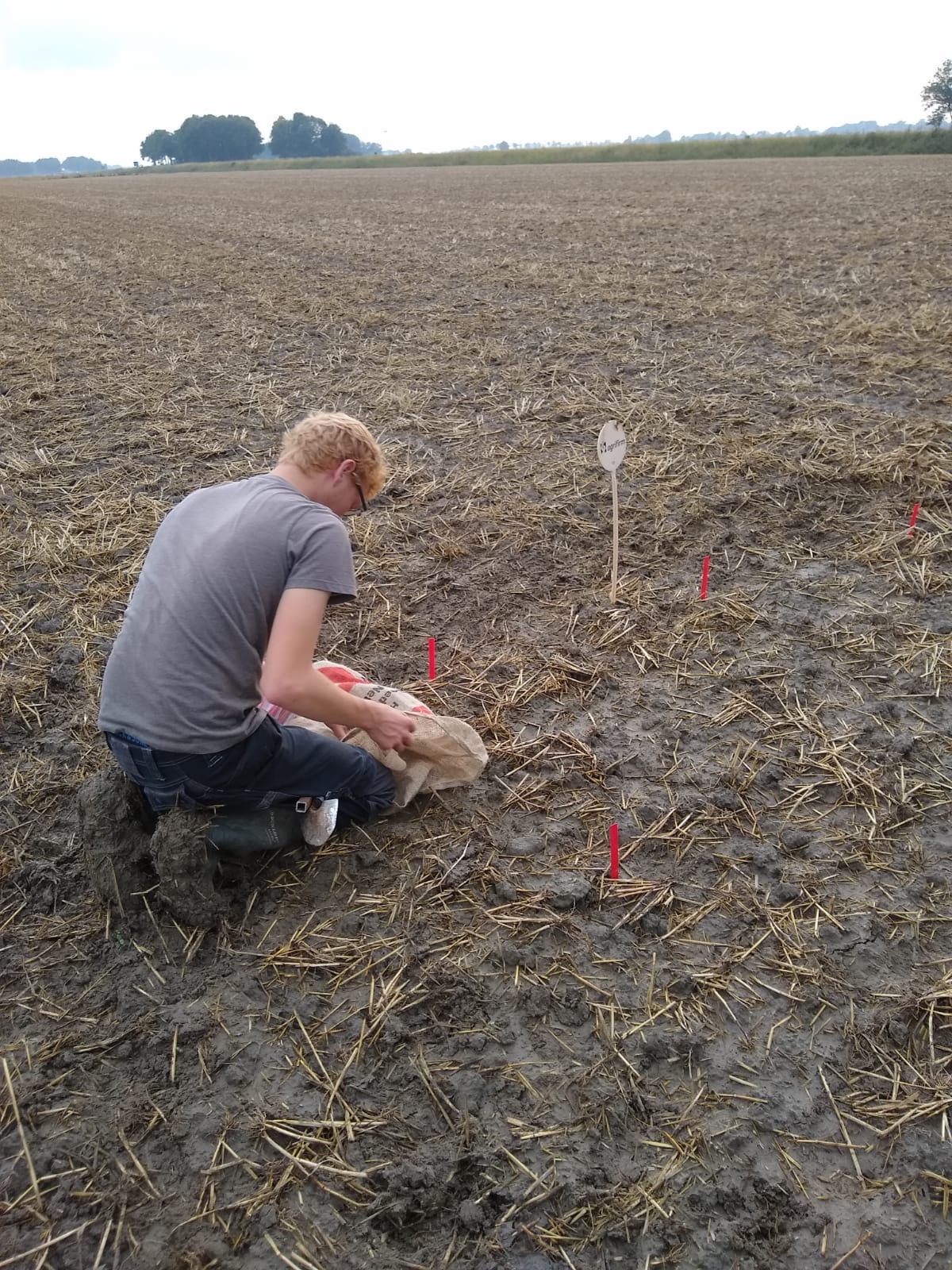An unusual solution: carrying out research for your masters’ thesis close to your hometown. However, Maurice Olthuis started his thesis research in familiar surroundings this week.
Olthuis, who is a second-year Plant Sciences student, was exploring six-month thesis opportunities this spring when the corona crisis hit. ‘I actually expected many programmes to be discontinued. I cancelled my room in Wageningen and returned to Zeerijp, right in the earthquake region in north-eastern Groningen.’
Groundkeepers
For many years now, Olthuis spends his free time working for a company in propagating materials in Groningen. This company is experiencing increasing “groundkeeper” issues as a result of mild winters. Groundkeepers are tubers that are left behind in the field after the harvest and survive the winter. This impedes crop rotation with, for example, wheat and beetroots, especially as the groundkeepers propagate and can reappear even after three years when the farmers rotate back to a new potato crop. The groundkeepers are rejected or marked down in price, which is why farmers prefer to have as few of these as possible.
Green manure
The research question popped up in the company cafeteria. ‘A colleague of the farmer had not tilled the soil after the wheat harvest and reported very few groundkeepers. We used a green fertiliser after the wheat harvest, and had a lot of groundkeepers.’
Yellow mustard
Olthuis has set up a field experiment on this farm. To this end, he subdivided an area of 60 by 70 meters into twenty 3 metre wide strips. These are to be fertilised with four different fertilisers, such as fodder radish and yellow mustard, as well as one untreated control strip. This pattern is repeated three times, randomly placing green manures next to each other. Potatoes are planted at different depths in all strips, to mimic the groundkeepers. Over the next months, he will monitor whether the potatoes take root.
Vitality
We know precisely how many potatoes have been planted. We monitor how the green manure develops and whether the potatoes emerge or disappear every two weeks. At the end of the experiment, we will harvest the vegetables and assess their vitality.’ The analysis should provide insight into whether the cultivation of green manures stimulates groundkeepers.
The research is to be concluded by February. Olthuis hopes to find new links. ‘There are hundreds of publications on groundkeepers, but none that study the relation between green manures and groundkeepers.’

